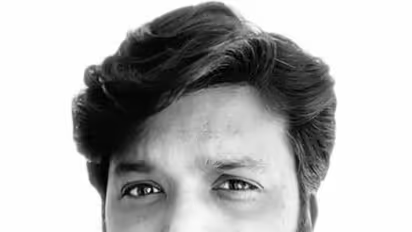Danish Siddiqui’s family says anti-CAA protest book ‘Hum Dekhenge’ had no authorisation to use his name

Synopsis
The family’s statement read, claiming Danish was involved and gave suggestions for the book amounts to raising doubts over his “professional ethics” and “credibility”.
The family of slain Reuters photojournalist Danish Siddiqui on Tuesday issued a statement alleging that the authors of a photo book called ‘Hum Dekhenge’ had not sought any authorisation from the family to associate Siddiqui’s name with their project contrary to their purported claim in media interviews.
Danish Siddiqui, a name most Indian newsrooms would consider their mainstay when it came to editorial photo selection, was killed on the night of July 15, while covering clashes between the Taliban and Afghan Special Forces.
The Pulitzer Prize-winning photojournalist, who headed the India multimedia team at Reuters, has been responsible for taking some of the most defining photographs of human struggle and conflict in the last decade.
The family’s statement read, claiming Danish was involved and gave suggestions for the book amounts to raising doubts over his “professional ethics” and “credibility”.
Curated by Aasif Mujtaba and Mohd Meharban, the book was published by the White Dot Publishers. It is “a visual compilation of the unwavering resilience, courage and perseverance of the Muslim community who not only stood strongly but fought bravely when its citizenship was being challenged by the state”, the publishers said.
However, Danish’s father Akhtar Siddiqui said, “The book’s authors have dedicated this book to Late Danish Siddiqui, the Reuters photojournalist who died during an assignment in Afghanistan in 2021. Further, during media interviews, the book’s authors have also claimed that Danish was involved with the book and would give suggestions on making it better. On behalf of Danish’s family, we would like to categorically state that no authorisation was given to anyone to associate Danish’s name with this project.”
“We would like to categorically state that Danish Siddiqui maintained the highest standards of press freedom and integrity during his life and career as a journalist. He covered the Shaheen Bagh protests with objectivity and neutrality like any other professional assignment. Showing him falsely in this way raises wrong questions on his professional ethics and credibility and seriously hurt his professional standing, besides causing deep hurt to his already bereaved family,” he said.
Siddiqui “hoped” the authors “take note of this and withdraw their statements given to the press”.
He also added, in the future, “anyone planning to use Danish Siddiqui’s name for any – commercial or non-commercial project – is advised to seek the consent or authorisation of his family”.